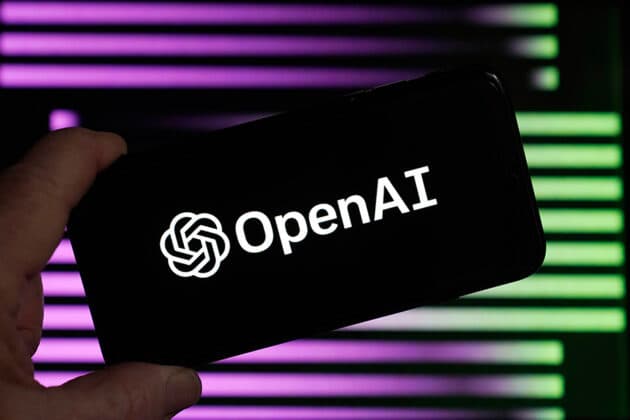We're loading the full news article for you. This includes the article content, images, author information, and related articles.
As Kenya rolls out a national strategy to become an African AI leader, Google's chief executive Sundar Pichai urges caution, highlighting that AI models are prone to errors and should not be solely relied upon for accurate information.

NAIROBI – In a direct address to users and developers globally, Sundar Pichai, the chief executive of Google’s parent company Alphabet, has issued a stark warning against placing unconditional faith in artificial intelligence. During an exclusive interview with the BBC on Tuesday, 18 November 2025, Pichai stated that people should not “blindly trust” the outputs of AI tools, acknowledging that even the most advanced models are “prone to errors.” This cautionary message arrives at a pivotal moment for Kenya, which is aggressively positioning itself as a continental hub for AI innovation.
“We take pride in the amount of work we put in to give us as accurate information as possible, but the current state-of-the-art AI technology is prone to some errors,” Pichai told the BBC. He emphasized the need for a rich information ecosystem where users cross-reference AI-generated content with other reliable sources, such as traditional Google Search. This warning has been substantiated by independent research and public incidents. In May 2025, Google's own AI Overviews feature was found to be providing inaccurate answers, including incorrectly stating the current year was 2024. Research from the Tow Center for Digital Journalism also found that various AI search tools failed to correctly identify the source of articles in 60% of cases, often presenting incorrect information with alarming confidence.
Pichai's comments carry significant weight in Kenya, where the government is actively encouraging AI adoption. On 27 March 2025, Kenya launched its National Artificial Intelligence Strategy (2025–2030), a comprehensive roadmap aimed at leveraging AI for socio-economic development. Spearheaded by the Ministry of Information, Communications, and the Digital Economy, the strategy targets key sectors like healthcare, agriculture, and financial services for AI-driven transformation. The plan aligns with the nation's Vision 2030 and the National Digital Master Plan (2022–2032).
The push is already showing results. A November 2025 study by Zoho revealed that 96% of Kenyan organizations have started implementing AI, the highest rate in Africa. However, this rapid adoption brings the risks Pichai highlights into sharp focus. President William Ruto has also urged for a cautious approach, stating on 18 November 2025, that AI must not replace human judgment and that regulations are being implemented to prevent its misuse, especially in spreading disinformation that could undermine democracy.
The potential for AI to be weaponized is a critical concern, particularly for Kenya's democratic processes. The 2022 general elections already saw the circulation of AI-generated deepfake videos and doctored images targeting leading candidates. With the 2027 elections on the horizon, experts warn that AI-powered misinformation, including deepfakes, automated bot networks, and micro-targeted false narratives, poses a significant threat to electoral integrity. These tools can exploit societal divisions and erode trust in institutions. The rapid spread of such content on platforms like WhatsApp and X (formerly Twitter) presents a formidable challenge for fact-checkers and electoral bodies.
Some critics argue that the responsibility for accuracy should not fall on users. They contend that tech giants like Google should focus more on building reliable systems rather than asking the public to fact-check their products. While Pichai noted that Google is investing heavily in AI safety and developing tools to detect AI-generated images, the fundamental challenge remains: AI models are designed to predict the next word, not to understand truth, which can lead them to fabricate information confidently.
As Kenya forges ahead with its AI ambitions, the dialogue between global tech leaders and local policymakers will be crucial. The National AI Strategy acknowledges the need for ethical guidelines, data sovereignty, and legal frameworks to govern AI. It emphasizes upholding human dignity, equality, and non-discrimination as enshrined in the Constitution of Kenya, 2010. President Ruto's administration has signaled a move toward more structured governance, including audits and human oversight for AI systems.
Pichai himself acknowledged the societal disruptions AI will cause but also pointed to the creation of new opportunities, stating that workers who adapt and learn to use these tools will fare better. For Kenya, the path forward involves navigating the tension between harnessing AI's transformative potential and mitigating its inherent risks. The warnings from one of the world's top tech executives serve as a timely reminder that as the nation embraces this powerful technology, a healthy dose of skepticism and a commitment to verification are essential safeguards.
Keep the conversation in one place—threads here stay linked to the story and in the forums.
Sign in to start a discussion
Start a conversation about this story and keep it linked here.
Other hot threads
E-sports and Gaming Community in Kenya
Active 9 months ago
The Role of Technology in Modern Agriculture (AgriTech)
Active 9 months ago
Popular Recreational Activities Across Counties
Active 9 months ago
Investing in Youth Sports Development Programs
Active 9 months ago
Key figures and persons of interest featured in this article